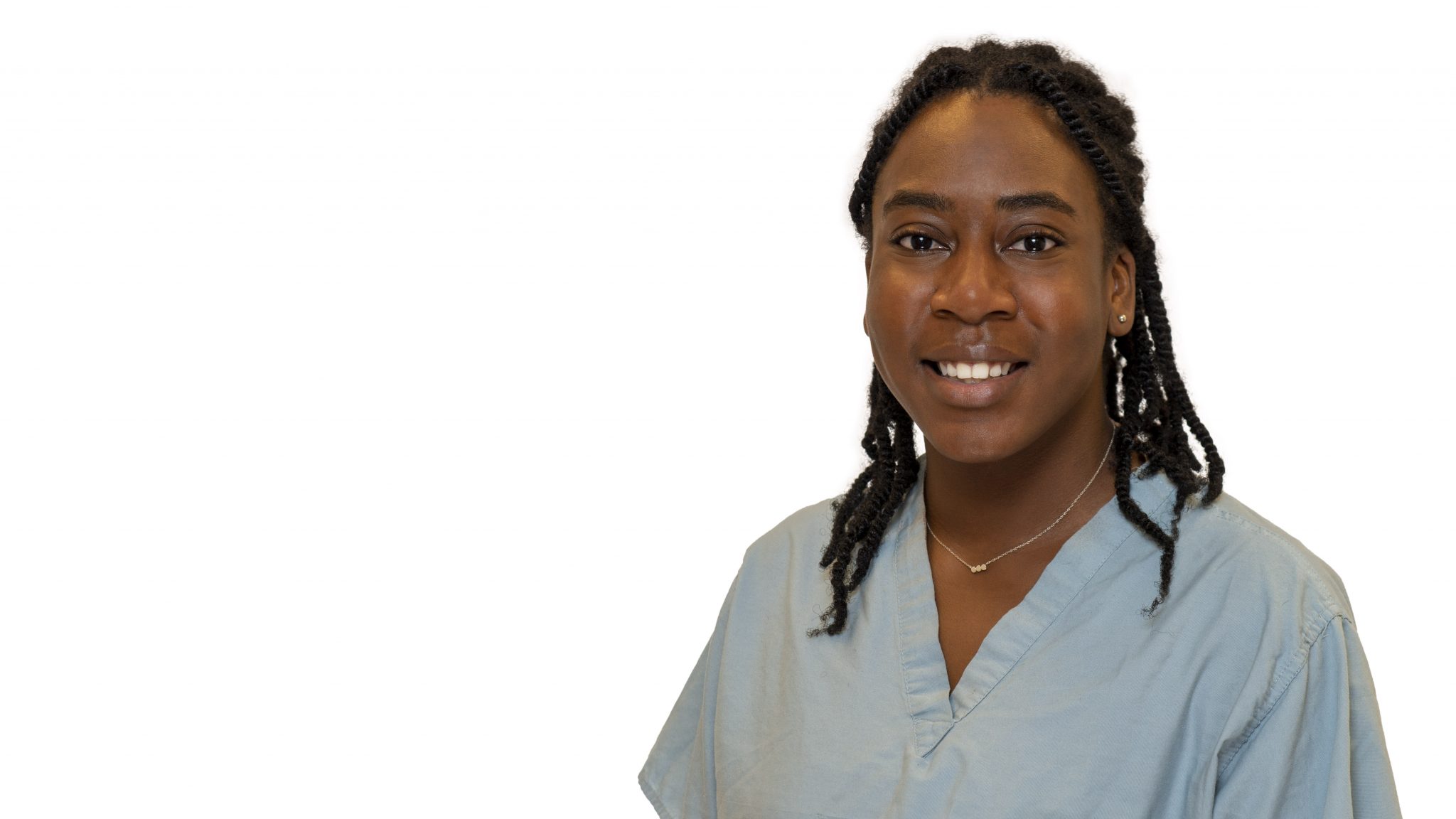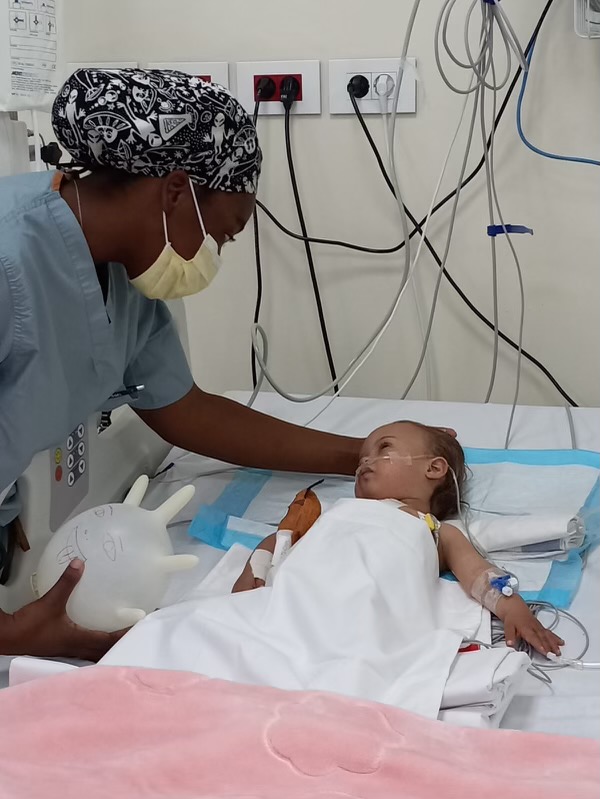THI Perfusion Student Frances Lewis Shares Perfusion Without Borders Experience

Texas Heart Institute (THI) School of Perfusion Technology student Frances Lewis recently shared her experiences traveling to Al Rachaya, Lebanon, on a prestigious Perfusion Without Borders (PWOB) scholarship. The scholarship grant was awarded by the American Society of Extracorporeal Technology and enabled her to participate in a medical mission trip led by the Novick Cardiac Alliance. Lewis collaborated closely with an international team of health care professionals and volunteers to provide cardiovascular surgical care to pediatric patients who would not have received treatment otherwise.
Lewis presented her personal account, “Turning Passion into Practice,” to an audience of trainees, perfusionists, physicians, and other health care specialists at the Perfusion School’s annual conference, PerfCon 2022.
She describes herself as a global citizen—someone who can make themselves at home in any country, embracing differences, looking past borders, and emphasizing humanity—who has traveled extensively throughout the world on numerous mission trips with family and colleagues. At the invitation of a former Perfusion Without Borders scholarship recipient, Lewis traveled with the Novick Cardiac Alliance, which seeks to provide care to children with congenital or acquired heart disease across the globe.
The mission’s destination of Al Rachaya, Lebanon, is near where Lewis was born in Jeddah, Saudi Arabia. The international team of surgeons, perfusionists, nurses, anesthesiologists, medical students, and volunteers performed 13 pediatric cardiovascular surgeries in 14 days, with patients ranging in age from 17 days to 15 years old. The team treated children from Al Rachaya, as well as others who had traveled great distances, some by foot, to receive surgical treatment, including patients from Syria. The area served by their mission trip is predominantly agricultural and economically distressed, with 78% of the population below the poverty line as evaluated by the United Nations. The city is subject to rolling electrical blackouts, including the hospital where the team was stationed.

Lewis detailed many of the challenges related to delivering care in that environment. The problems that she and the team encountered were beyond those normally seen in a well-equipped operating room, and finding solutions required cooperation, extreme flexibility, and advanced problem-solving skills. Challenges included mechanical issues with perfusion equipment that necessitated rapid troubleshooting and on-the-spot engineering; a lack of air conditioning; a limited supply of tests to monitor anticoagulation therapy; and the need to use kettles, and even a microwave, to heat water to help rewarm patients before stopping cardiopulmonary bypass.
Despite these challenges, Lewis emphasized the benefits of being part of the care team and the continuity of the experience with her patients. “One of the most gratifying aspects of mission trips is that you are not just in the OR; we work with the ICU staff, we work with interventionists, we work with everybody. You see your patient beforehand, and see them after the procedure, and know that they are safe—know that they are doing better.”

Lewis characterized the experience as “very tough” both in terms of the workload and the emotional aspects of facing difficult cases without her usual support network, but she shared the satisfaction that comes from knowing that the team helped many people who would not have received care otherwise. She remarked, “Regardless of how tough it was, I would definitely do it again, and again, and again.”
Lewis closed her presentation by expressing gratitude. She was grateful for the opportunity itself, for the lasting friendships she developed, for the bravery of the children she helped treat, and for being in the United States, with resources and infrastructure that are not always available in other countries. Reflecting on her time in Al Rachaya, she said, “Sometimes you have to make use of what you have.” She was also grateful for the educational impact of the mission trip, especially for her occasion to learn from perfusionists from different corners of the globe who emphasized the same basic tenants of care that she learned from her instructors at the Texas Heart Institute.

Lewis is now a Senior student in the Perfusion program, and her mission trip experience has influenced her career plans. “I am now thinking about doing international or pediatric perfusion because there are so many other ways to help different people, in different places.”
Deborah Lowery Adams, LP, CCP, the School’s Director and Clinical Coordinator, has also participated in several international mission trips with the Novick Cardiac Alliance. She described the value of Lewis’ scholarship trip, saying, “Frances undertook this mission as a dedicated, service-minded individual with an already global viewpoint. This trip helped broaden her international health care experience and expand her view of her potential career paths. I am extremely proud that she could use her training to help these children and embody the emphasis on excellence that our program instills in our graduates.”



